The Criterion in Piccadilly Circus has one of London’s grandest dining rooms, dating back to 1873, complete with marble walls and gold mosaic ceiling. Designed by architect Thomas Verity, it had a host of famous historical guests including Churchill, H.G. Wells and Bertrand Russell. The restaurant has appeared in fiction from the first Sherlock Holmes story to a Somerset Maugham short story and even P.G. Wodehouse story. It was also used in a scene in the TV series Downton Abbey.
Over the years The Criterion had several owners including Marco Pierre White for a time, and more recently a couple of Italian owners. Sadly, the food became an afterthought and it became mostly a destination for tourists drinking expensive cocktails before closing in September 2022. In May 2023 it was taken over once again and converted into a Masala Zone restaurant. Masala Zone is part of the MW Eat group, set up by Ranjit Mathrani. The group has other Masala Zone sites as well as the rather more ambitious Amaya, Chutney Mary and Veeraswamy. The current owners have mercifully left the glorious ceiling well alone, and imparted an Indian sense of décor through various wall hangings and other subtle touches. It is a large space with capacity for 198 diners at any one time.
The menu was a la carte, and prices did not seem wildly high given the ultra-central location. The head chef was Indraneel Mallik, who was formerly the long-term head chef of Masala World in Earls Court since 2011. Before that he was sous chef of Amaya for five years after training at Park Hotels in Visakhapatnam in Andrha Pradesh on the Bay of Bengal.
There was a short wine list, though vintages were omitted. Sample bottles included Alpha Zeta C Chardonnay at £37 for a bottle that will set you back £11 in the high street, Gran Dominio Rioja Crianza £49 compared to its retail price of £10, and Wild Earth Pinot Noir at £70 for a bottle that will set you back about £27 in a shop. A small bottle of Kingfisher beer was £6.
Poppadoms (£4.75) came with a trio of chutneys: mango, mint and slightly spicy tomato. The poppadoms were grilled rather than fried which was a pity, but they were crisp at least. Aloo tikki chaat (£7.20) was deconstructed into a potato pattie with some tamarind chutney and yoghurt as a base, and a channa masala to one side. The potato had good texture and the chickpeas were tender, while the tamarind added a nice level of sweetness (easily 13/20).
Chicken biryani (£19.50) did not have a pastry case when presented but was nonetheless very good. The grains of rice were distinct and aromatic, the chicken avoiding dryness and the dish enlivened by a few cashew nuts and some pomegranate seeds for freshness (14/20). Makhani dhal (£5.50) was very good, the black lentils cooked overnight and having a pleasing, slightly creamy texture with a rich, dark sauce with a touch of smokiness (14/20). On the side, naan bread was pleasantly soft and supple (13/20).
Thali (£21.25) was a traditional meal on a single stainless-steel plate consisting of several small dishes surrounding a central heap of rice. There was a prawn curry, mixed vegetable curry, yellow dhal, a dish of okra and potato, a raita and a poppadom. The vegetable curry was generally reasonable but eccentrically had some pineapple in amongst the carrots and green beans and mushrooms. Potatoes and okra were decent and the okra avoided sliminess, while the yellow dhal had good texture. However easily the best element was the prawn curry, which had carefully cooked prawns and a very good sauce with gentle spices (13/20 overall for the thali).
We tried two desserts, which are made in-house here. Gulab jamun (£6.75) was the traditional sphere of fried milk solids and flour, garnished with a few pistachios. This for me needed more syrup, though the ginger ice cream with it had plenty of ginger flavour from the stem ginger used (12/20). Gajar halwa (£6.75) was the traditional kind made with carrots and rabri, a kind of porridge made with condensed milk and jaggery along with a little spice. This dish had a nicely judged level of sweetness (13/20).
Service was excellent, with our excellent and wildly overqualified waitress (Ujwala) from Hyderabad possessing a master’s degree in hospitality. The bill came to £63 per person with beer to drink. This did not seem excessive given the ample amount of food that we had ordered, the historic setting and the genuinely good service.














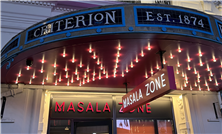

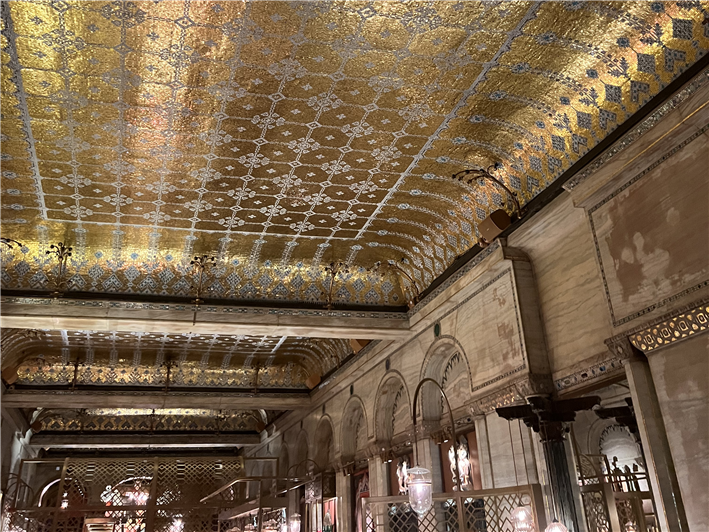
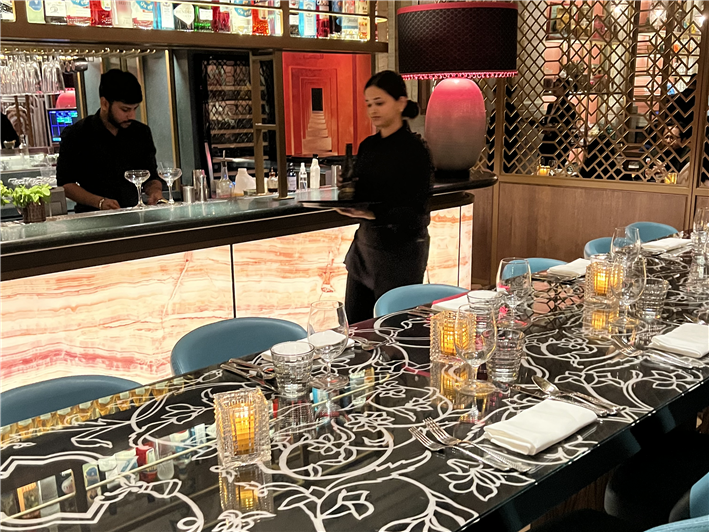
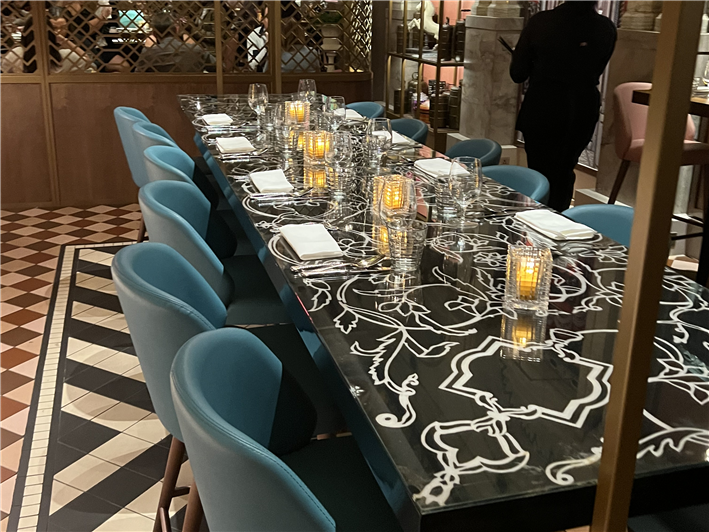
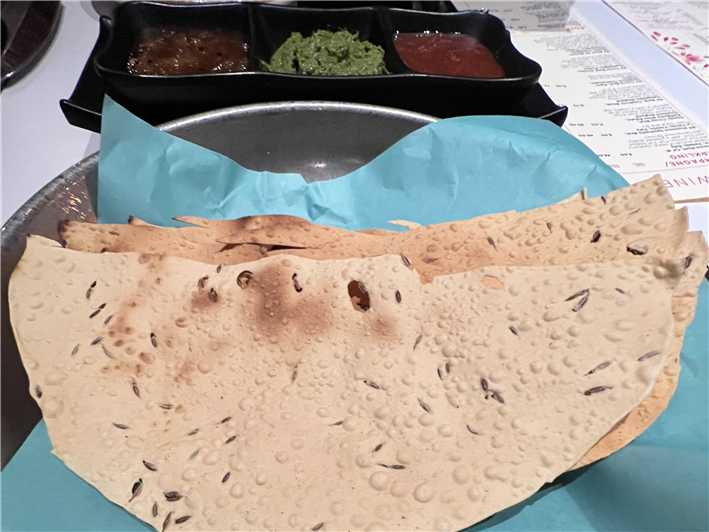
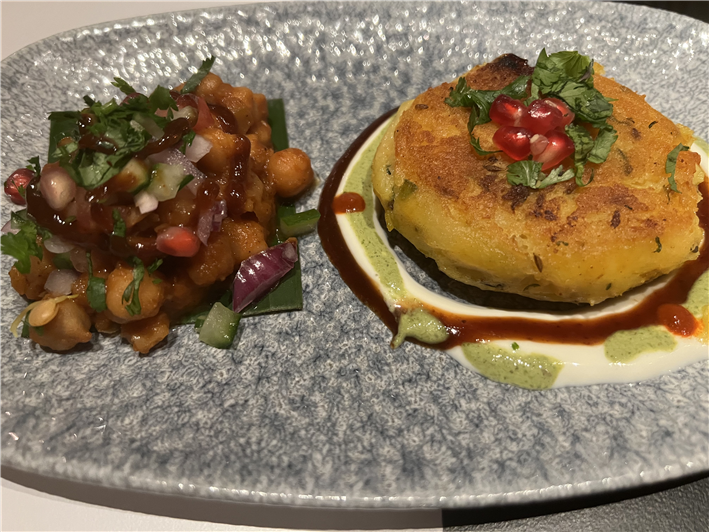
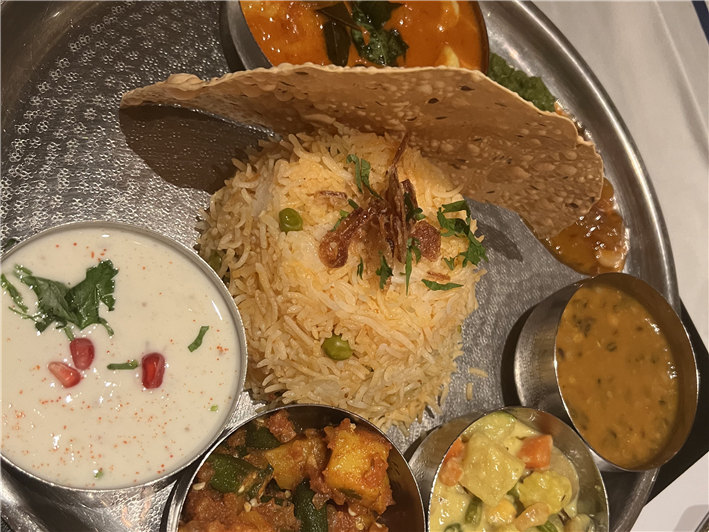
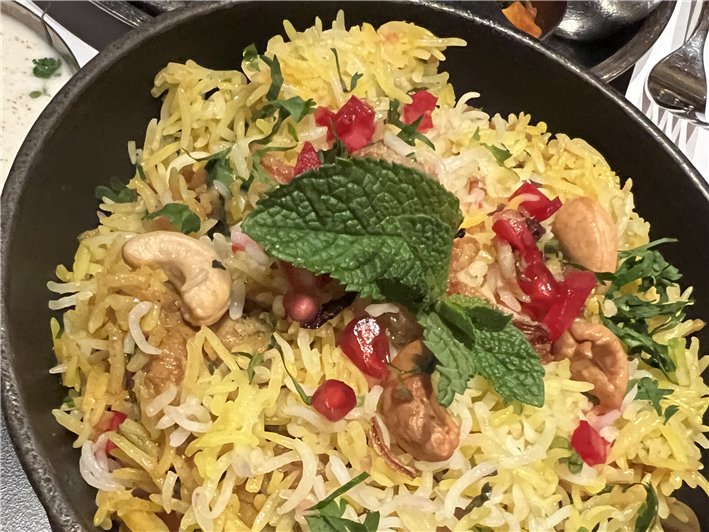
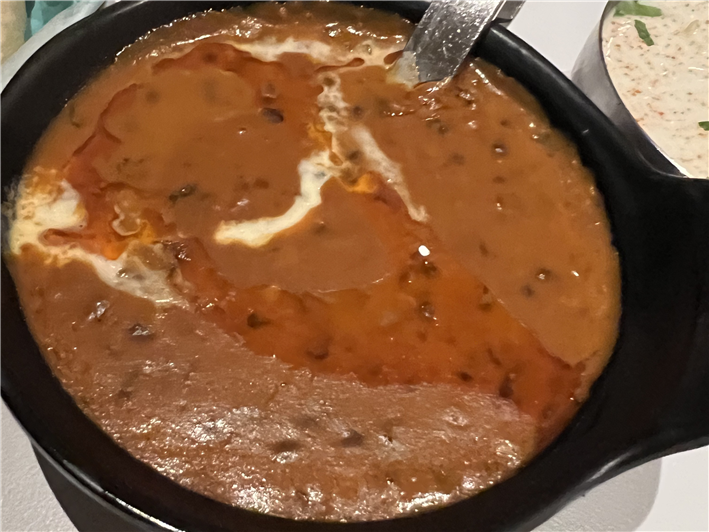
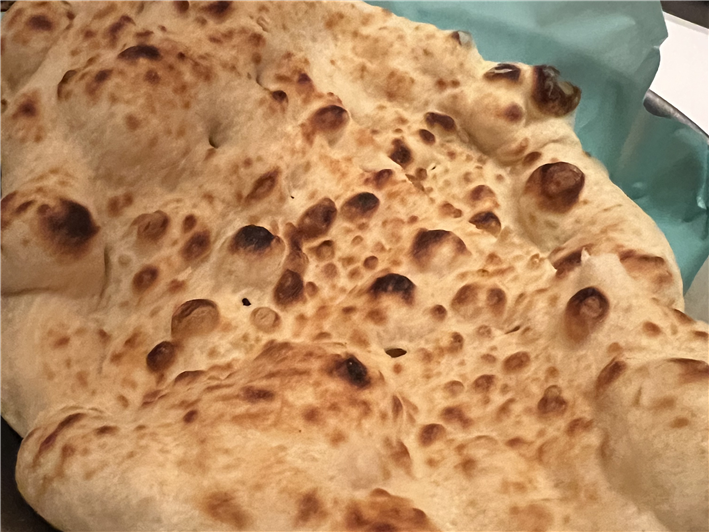
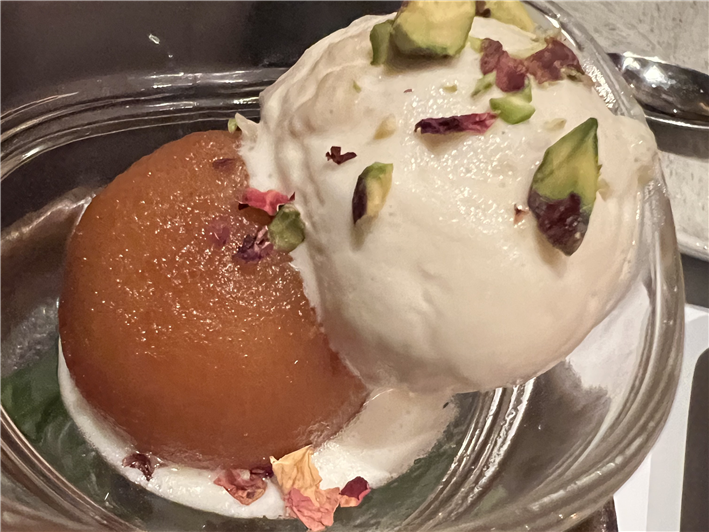
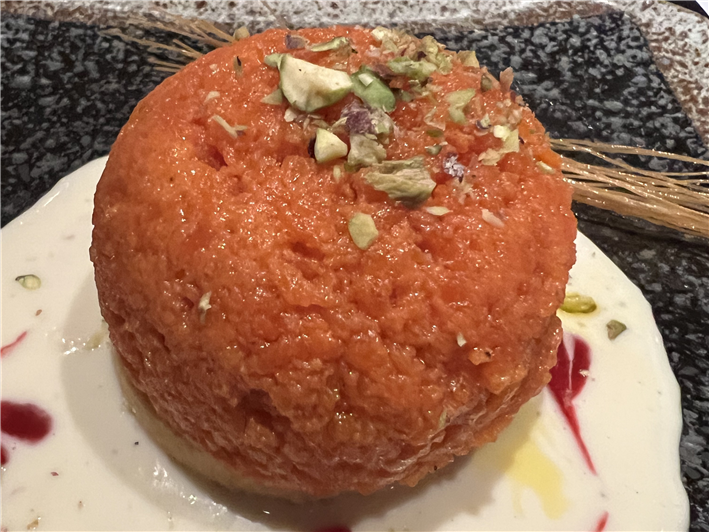

Add a comment
Thank you for submitting your comment, this will be checked and added to the website very soon.
User comments